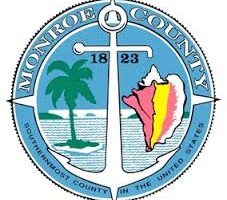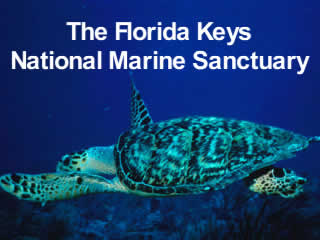Curt-A-Sea Aquatic Adventures Earns Sanctuary Blue Star Certification
NOAA’s Florida Keys National Marine Sanctuary welcomes Curt-A-Sea Aquatic Adventures of Islamorada, Florida as the newest participant in the Sanctuary’s Blue Star education and conservation program.
The Blue Star program, which recognizes charter companies that commit to training snorkelers and divers in low impact practices, has grown to 20 operators since its inception in 2009. Research has shown that education can lessen the impact that snorkelers and divers have on marine ecosystems, because they are more careful to avoid damaging contact with corals and other marine life.
“Congratulations to Curt-A-Sea Aquatic Adventures for their commitment to marine conservation,” said Sanctuary Superintendent Sean Morton. “We are happy to recognize the work they do to advance conservation through low-impact education and research trips.”
Curt-A-Sea Aquatic Adventures specializes in live-aboard excursions, including diving, fishing, spearfishing and marine research and education expeditions on coral bleaching, reef awareness, coral farming, shark tagging, fish identification, and lionfish eradication. They have taken federal, state, university and non-profit researchers from NOAA, U.S. Geological Survey, Florida Fish and Wildlife Conservation Commission, the University of Miami, and the Hawsepiper Foundation on research expeditions.
“I couldn’t wait to be part of this program. It’s such a good fit with what we already do — spreading the word about conservation is what we’re all about,” said Captain Curtis Slonim.
The sanctuary is home to the third-largest living barrier coral reef in the world, and is visited by hundreds of thousands of snorkelers and divers each year. This contributes to an estimated $2 billion in annual ocean-based tourism revenue. The reef’s close proximity to land and an abundance of boat operators in the Keys make it easily accessible to both novice snorkelers and seasoned divers.
Operators become Blue Star certified by attending annual training on issues affecting coral reefs, sanctuary regulations and coral reef etiquette. In turn, Blue Star operators educate their customers by incorporating the information into certification classes and dive briefings. They also must offer conservation-related dive courses and participate in activities such as fish counts and reef clean-ups. Operators are re-evaluated on an annual basis.
Visit www.floridakeys.noaa.gov/onthewater/bluestar.html for more information on the program and a list of recognized operators.
Florida Keys National Marine Sanctuary protects 2,900 square nautical miles of critical marine habitat, including coral reef, hard bottom, sea grass meadows, mangrove communities and sand flats, as well as shipwrecks and maritime heritage resources. NOAA and the state of Florida manage the sanctuary. Visit us at http://floridakeys.noaa.gov, find us on Facebook and follow us on Twitter.
NOAA’s mission is to understand and predict changes in the Earth’s environment, from the depths of the ocean to the surface of the sun, and to conserve and manage our coastal and marine resources. Join us on Facebook, Twitter, Instagram and our other social media channels.
[livemarket market_name="KONK Life LiveMarket" limit=3 category=“” show_signup=0 show_more=0]





No Comment